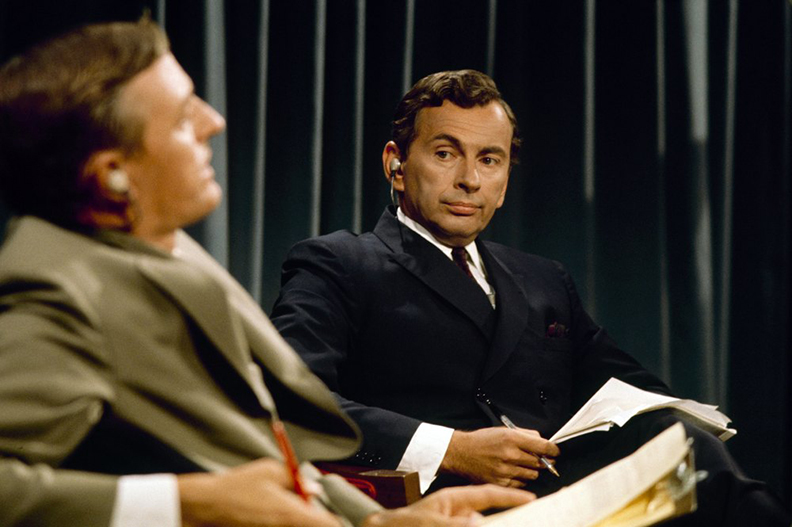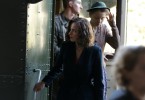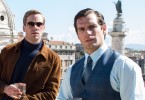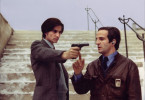Best of Enemies
Directors: Robert Gordon, Morgan Neville
5:30 p.m. and 8 p.m. Friday–Saturday, 2 p.m. and 5:30 p.m. Sunday
Oklahoma City Museum of Art
B+
The day before the 1968 Republican National Convention, the ceiling of the ABC News studio stationed at the Miami Beach Convention Center collapsed, temporarily shambling the struggling network’s control room and set. Nobody knew it at the time — especially not ABC — but the resulting disarray proved to be a prophetic metaphor for the fractured fate of broadcast journalism. For better or worse, political punditry and slanted cable news commentary are 2015 America’s de facto information resources. And it all started with ABC’s televised debates between William Buckley and Gore Vidal, portrayed with appropriately crafty and captivating fashion in Best of Enemies.
The documentary depicts Buckley and Vidal’s contentiously off-the-cuff (and wildly entertaining) discourse through rare archival footage and interviews, many of which articulate the broader, far-reaching effects they had on today’s political climate. At the time, ABC was playing third fiddle to NBC and CBS, networks that had established their network news dominance through fact-based, down-the-center reporting — the standard in 1968. But by pitting Buckley and Vidal — who already detested one another prior to the debates — ABC subsequently surged in the ratings, with millions tuning in each night of the convention to watch the two pummel each other with personal jabs and snidely delivered one-liners. It was shockingly candid television unlike anything the American people had ever seen, and they couldn’t stop watching.
But Best of Enemies is most absorbing in its examination of the individuals themselves: their worldviews, motivations, weaknesses, differences, and ultimately their similarities. Buckley — a self-described conservative, Republican, Christian libertarian — founded the highly influential National Review, a publication renowned for its unabashedly conservative, Republican, Christian libertarian news. Vidal — a liberal, radical, forward-thinking sexual deviant — was a highbrow writer known for his uncommonly edgy novels and plays (including the notorious Myra Breckenridge), many of which were adapted for the silver screen. Despite their existence on opposite ends of the ideological spectrum, Buckley and Vidal had one very important thing in common: a relentless affinity for their own pride and intellect.
As often happens in a battle of egos, their conviction turned to hate, with both even going so far as to believe, in their heart of hearts, that the other threatened not only the advancement of their ascribed political doctrine, but the fate of humanity as a whole. Naturally, their debates became less about issues or party platforms and more about pummeling their opponent, about winning, and eventually devolving into a battle of who can dig deepest under the other’s skin. This manifested in a television meltdown for the ages after Vidal called Buckley a “crypto-Nazi,” to which Buckley replied, “Now listen, you queer, stop calling me a crypto-Nazi or I’ll sock you in your goddamn face.”
Moments like these carry consequences that need no explanation. And outside of their subtle use of editing to inject a leisurely buoyant tone, directors Robert Gordon and Morgan Neville know good and well to let the images and sound bites tell the story — until the end credits, when they needlessly tack on what the preceding 85 minutes had already explicitly implied. It’s an unfortunate “allow me to explain what you just watched” moment, overly simplistic in its insinuation that Buckley and Vidal, conservatives and liberals, Fox News and MSNBC are merely two sides of the same coin. The prevailing theory that the truth always lies in the center should satisfy those who already ascribe to it, much like it would if it implied that the truth lies on the right or left. What is indisputable, however, is that the story of Buckley and Vidal is as historically relevant as it is fascinating. And for 85 minutes, Best of Enemies is the most compelling glimpse into one of history’s great rivalries that you’re likely to ever watch. That we can all agree on.





